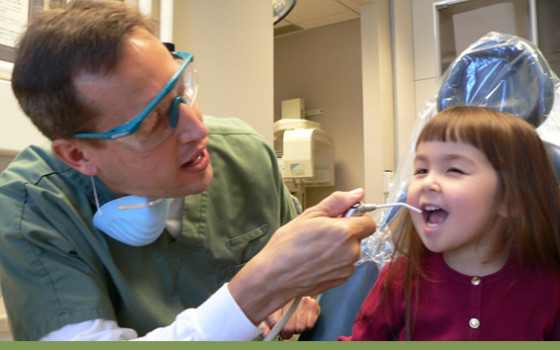Preparing for Your Child’s First Dental Appointment


Short and Sweet
Many dentists recommend your child’s first visit to their office be short and informal. The focus is more on introducing your child to the environment so it will be non-threatening. The dentist may do a brief cleaning or cursory examination, again mostly to get you child comfortable to an unfamiliar environment. While you and your child may meet the dentist together initially, during the first brief visit the dentist will likely want to meet with your child without you in order to establish trust. Most dentists will also give your child a free gift pack with a toothbrush and other goodies.
Initial Concerns
For the first complete dental examination, your dentist will likely want to review your child’s medical history to see if there are any concerns that could potentially impact his or her dental health. Then, your dentist will want to discuss your child’s oral health and any history of problems. You should be prepared to discuss his or her teething habits as well as other habits such as thumb-sucking. Your dentist will also likely examine your child’s bite to see if there are any discernible issues that will need to be addressed in future visits.
The Basics
Your dentist will also want to go over your own dental history as well as that of your family to determine if he or she needs to be on the watch for future oral problems. The dentist will also want to discuss the child’s diet and will likely suggest modifications if needed. The dentist or hygienist will also want to make sure you are aware of basic dental hygiene practices such as brushing, flossing, and fluoride use.
Making a Plan
The dentist will likely want to close the visit by establishing an agreed-upon plan for future visits. It’s best not to have too much time lapse between visits, since you want your child and the dentist’s office to maintain a close relationship. Since you as a parent are ultimately responsible for your child’s oral health, the dentist and hygienist will want to make sure you are properly educated about your child’s needs.






